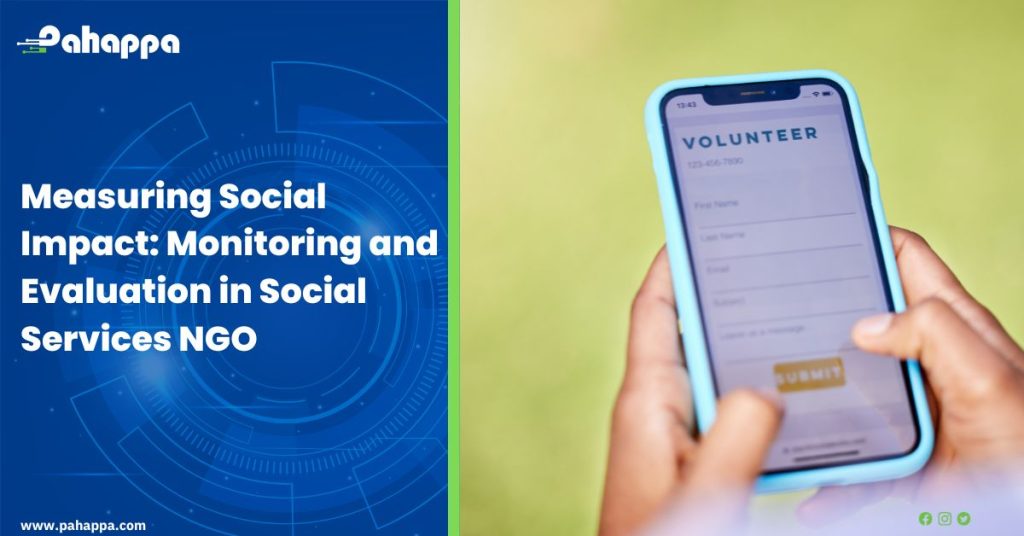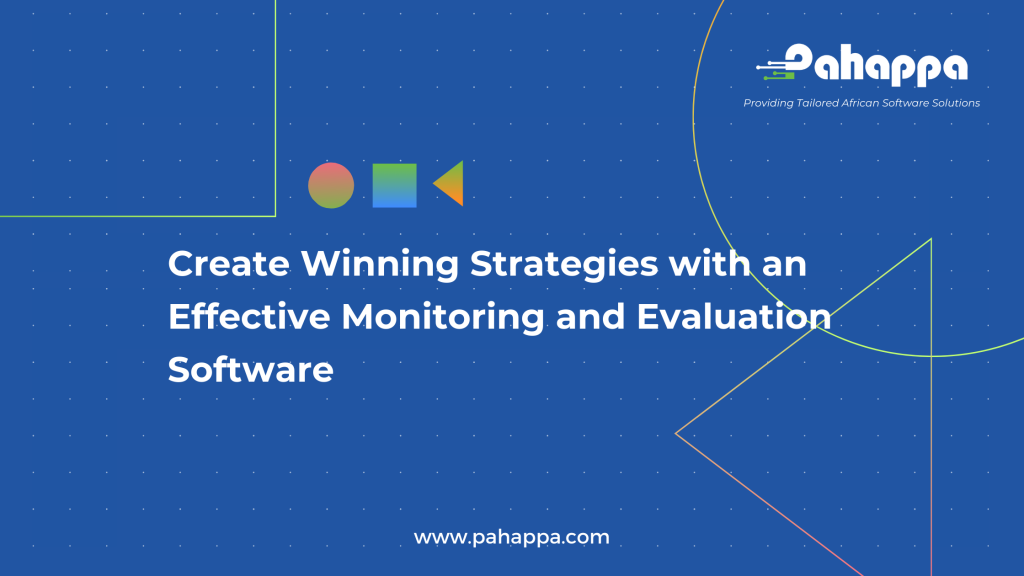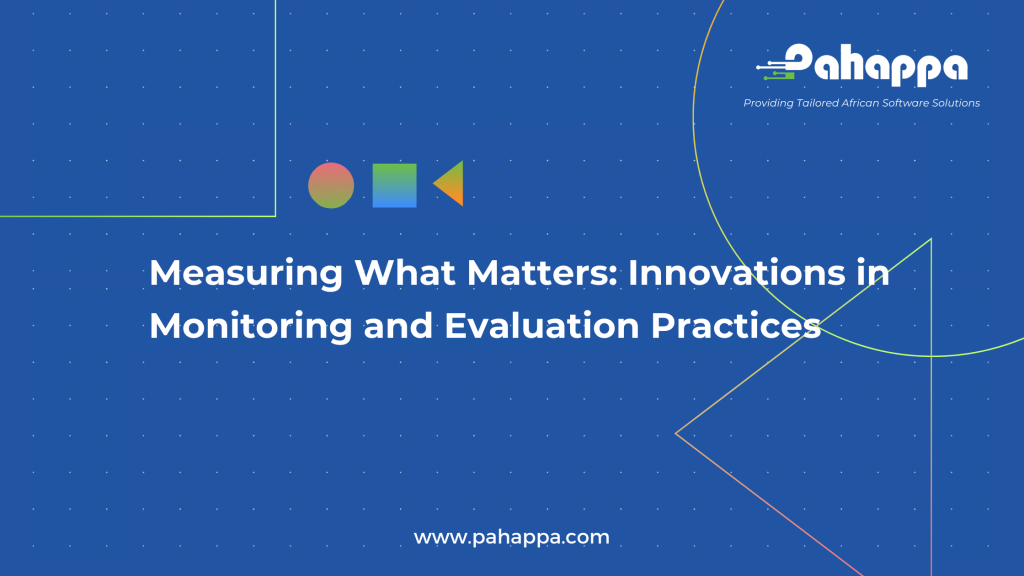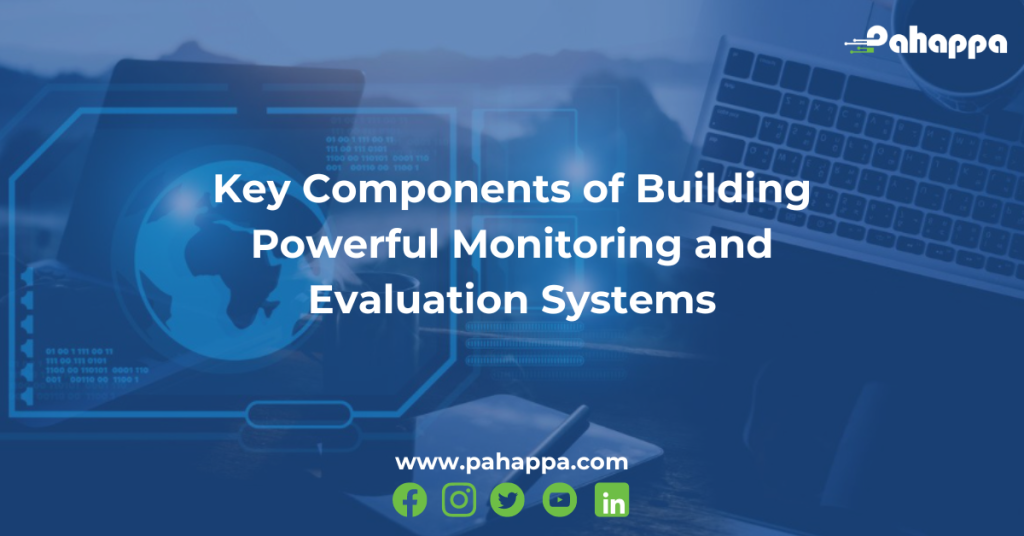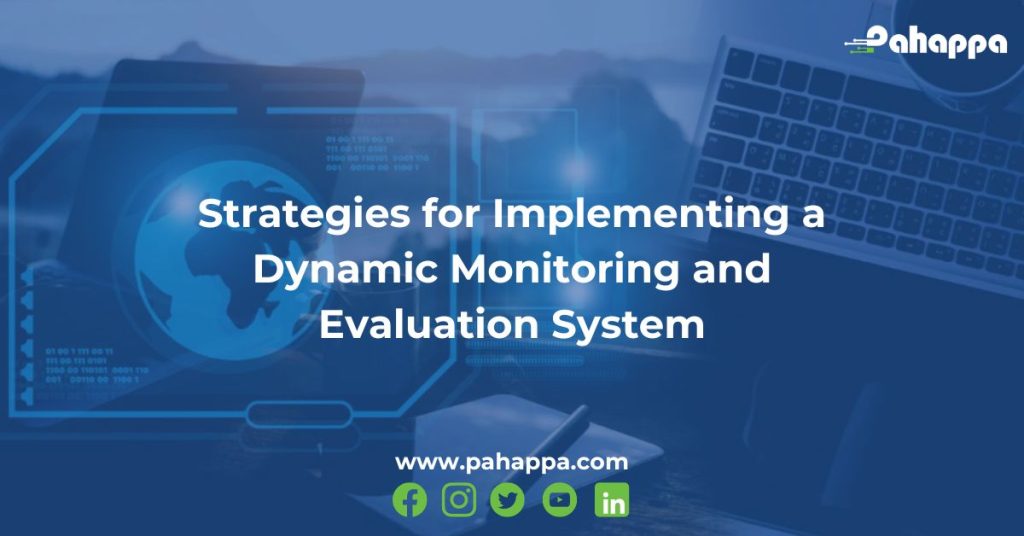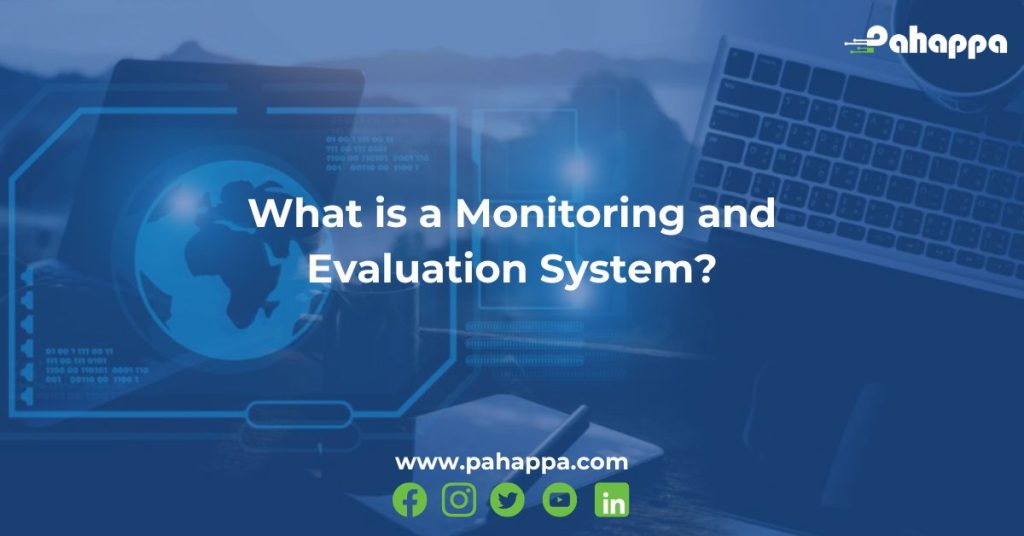A Monitoring and Evaluation (M&E) system for NGOs typically consists of several key components or modules that work together to help the organization assess the effectiveness and impact of its programs and projects. These modules are designed to facilitate data collection, analysis, and reporting. Here are some common modules found in an M&E system used by NGOs:
- Data Collection Module:
- This module enables the collection of various types of data, including quantitative and qualitative data, surveys, field observations, and beneficiary feedback. It often includes tools for designing data collection instruments and forms.
- Indicator Tracking Module:
- NGOs can define and track key performance indicators (KPIs) within this module. It allows for real-time monitoring of progress toward program objectives.
- Reporting and Visualization Module:
- This module helps in generating reports, graphs, and visualizations to communicate M&E findings effectively to stakeholders, donors, and the public.
- Data Analysis Module:
- NGOs can analyze collected data within this module. It may include statistical tools for in-depth analysis and data mining to draw insights from the data.
- Beneficiary Management Module:
- This module allows for the management of beneficiary information, tracking their participation, demographics, and any benefits received.
- Resource Tracking Module:
- NGOs can track the allocation and utilization of resources, including budgets, personnel, and assets, to assess the cost-effectiveness of their programs.
- Compliance and Quality Assurance Module:
- Ensures that programs and projects adhere to organizational and regulatory standards. It may include checklists and compliance tracking features.
- Risk Assessment and Mitigation Module:
- Identifies potential risks in program implementation and helps in developing strategies to mitigate them.
- GIS (Geographic Information System) Module:
- This module allows for the integration of spatial data, helping NGOs map program locations, analyze geographic trends, and visualize the impact of projects on specific regions.
- Document and Knowledge Management Module:
- Facilitates the storage, retrieval, and management of program-related documents, research findings, and knowledge resources.
- User Access and Permissions Module:
- Ensures that the right personnel have access to the appropriate data and functions within the M&E system, maintaining data security and privacy.
- Workflow and Task Management Module:
- Helps in streamlining M&E processes, task assignments, and workflows, ensuring that data collection and analysis tasks are carried out efficiently.
- Training and Capacity Building Module:
- Facilitates the training and development of staff members in M&E-related skills and practices.
- Integration with External Data Sources:
- Allows for the integration of external data sources, such as national statistics or third-party surveys, to enrich the NGO’s M&E efforts.
- Mobile Data Collection Module:
- Supports the collection of data in the field using mobile devices, ensuring real-time data updates and reducing data entry errors.
- Evaluation and Impact Assessment Module:
- Specific to conducting formal evaluations and impact assessments, including pre- and post-program evaluations and studies on long-term impact.
The specific modules an NGO chooses will depend on its goals, the complexity of its programs, available resources, and the type of data it needs to collect and analyze. A well-designed M&E system will ensure that the organization can effectively track its progress, make data-driven decisions, and demonstrate its impact to stakeholders and donors.
Measuring social impact is crucial for social services NGOs to assess the effectiveness of their programs and initiatives. Monitoring and evaluation (M&E) processes help organizations gather data, analyze outcomes, and make informed decisions to improve their services and demonstrate accountability to donors and stakeholders. Here are key steps and considerations for M&E in social services NGOs:
- Define Clear Objectives:
- Start by defining clear and specific objectives for your programs and initiatives. What social problems are you trying to address, and what outcomes do you hope to achieve?
- Select Relevant Indicators:
- Identify key performance indicators (KPIs) that are measurable, relevant to your objectives, and aligned with your mission. These indicators should be quantifiable and trackable over time.
- Baseline Data:
- Collect baseline data before implementing any interventions to establish a starting point for comparison. This data provides a reference for measuring changes in social impact.
- Data Collection and Management:
- Develop data collection methods and tools to gather information on your chosen indicators. This may involve surveys, interviews, focus groups, or existing data sources.
- Ensure that data is collected consistently, accurately, and securely. Develop a system for data storage and management, including digital databases.
- Regular Monitoring:
- Continuously monitor program activities to ensure they are being implemented as planned. This may involve ongoing data collection to track progress.
- Periodic Evaluation:
- Conduct periodic evaluations (e.g., mid-term and end-of-project evaluations) to assess the impact of your programs. Use a mix of quantitative and qualitative methods to measure outcomes and gather feedback from beneficiaries.
- Data Analysis:
- Analyze the data to assess whether your programs are achieving their intended outcomes. Use statistical and qualitative analysis techniques to draw meaningful insights.
- Reporting and Communication:
- Share your findings through regular reports, dashboards, and presentations. Use plain language to make the information accessible to all stakeholders, including donors and the community.
- Learning and Adaptation:
- Use M&E findings to make informed decisions about program improvements. If outcomes are not as expected, adapt your interventions and strategies accordingly.
- Stakeholder Engagement:
- Involve beneficiaries and other stakeholders in the M&E process. Their insights and feedback can provide a more comprehensive view of program effectiveness.
- Capacity Building:
- Ensure that your staff have the necessary skills and resources to carry out M&E activities effectively. Provide training as needed.
- Sustainability:
- Plan for the sustainability of M&E efforts beyond the duration of specific projects. This includes securing funding and maintaining M&E capacity within the organization.
- Ethics and Privacy:
- Ensure that you collect and manage data in an ethical and responsible manner, respecting the privacy and confidentiality of beneficiaries.
- Evaluation Framework:
- Develop a comprehensive evaluation framework that outlines the M&E process, roles and responsibilities, and a timeline for data collection and reporting.
- Continuous Improvement:
- Use M&E as a tool for continuous improvement. Encourage a culture of learning and adaptation within your organization.
Remember that measuring social impact is an ongoing process, and results may not always be immediate. By implementing a robust M&E system, social services NGOs can demonstrate their effectiveness, make data-driven decisions, and ultimately, make a more significant and sustainable impact on the communities they serve. To learn more about the M&E system, visit us here.


